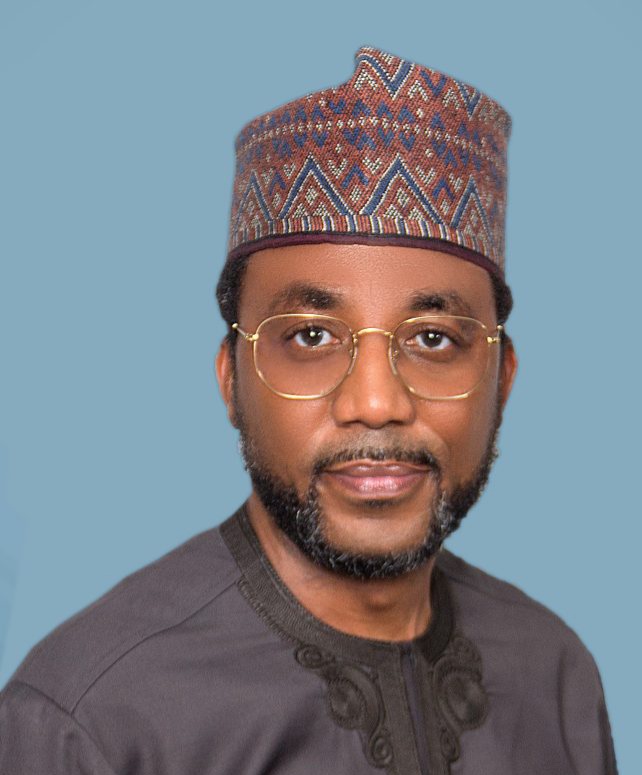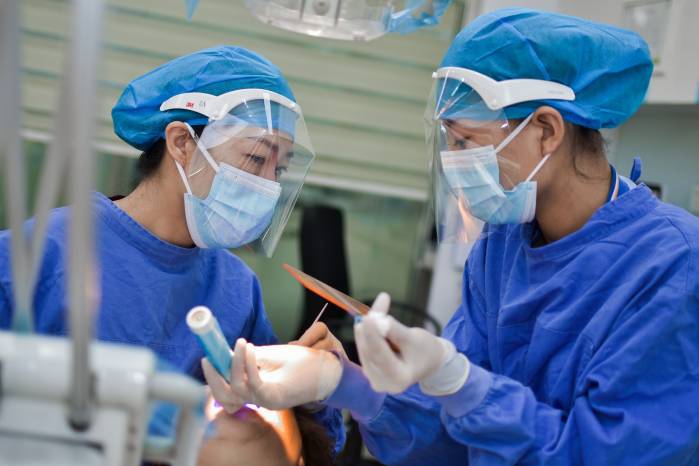With the increase in cases of cancer in recent times, almost everyone is scared stiff. The increase has made many health personnel and organisations to increase campaigns to draw the consciousness of all to the problem. In this interview with ASIAN NKUTT, the Executive Director of a non-governmental organisation, Health Education and Empowerment Initiatives (HEDEN), Mrs. Folashade Ofurune, speaks on issues concerning cancer.
TNE:Your NGO, HEDEN, has been particular about awareness campaign on cancer in general. What attracted you to this?
Health Education initiative works in the area of health, education, and empowerment. HEDEN conducts research, carries out advocacy and community development activities. Our awareness campaigns are aimed at reducing mortality and morbidity from diseases through enlightenment, promotion of early detection, and treatment. Cancer awareness is one of our many awareness campaigns. We campaign on Cancer because, according to the World Health Organisation (WHO) cancer is a global health issue and a leading cause of death worldwide. Cancer also causes significant social and economic burden to people.
TNE: What would you say is responsible for the increase in the cases of cancer in recent time?
I believe that change in lifestyle and environments are the main reasons for the increase in cancer cases. In the olden days, people trekked long distances to farm and do other physically tasking jobs. That served as their exercise. They ate natural food that people call organic food now. There were little or no chemical additives in their food. They did not use bleaching creams, and there was little air pollution.
But today things are the opposite; with the advent of internet business, many people are leading sedentary lives. The show-off attitude of today is making many people go to fast food outlets. So we get cancer and other non-communicable diseases.
TNE:How best can the increasing rate of cancer be stopped?
The World Health Organisation has identified some ways to prevent cancer namely; don’t use tobacco – tobacco contains over 7000 chemicals and it is the most significant cause of death from diseases. Every year about 6 million people die from illnesses caused by tobacco.
Control your diet and avoid physical inactivity; diet is a powerful way to prevent cancer. To prevent cancer a person should eat food high in fruits and vegetables. When good regular physical activities are combined with a healthy diet, the risk of cancer goes down.
Reduce Alcohol Intake; the higher the volume of alcohol a person consumes the higher the risk of cancer. About 337,400 deaths worldwide are caused by the combination of heavy alcohol intake and tobacco use.
Avoid some infections such as hepatitis B and C and Human Papilloma Virus (HPV); 1.4 million cases of cancer caused by infections occur in less developed countries. Get the HPV vaccine to prevent cancer caused by HPV. HPV causes cervical cancer.
Other ways of avoiding cancer, according to WHO include; stay away from polluted environments. Air, soil and water environment polluted with chemicals can cause cancer. Smoke from firewood and charcoal is responsible for cancer among women who do not smoke. Outdoor pollution causes 3.2 million premature deaths globally.
Stay away from an occupation that has a high level of chemical exposure especially asbestos and finally, avoid or reduce exposure to radiation whether natural or man-made. An example of human made radiation is X-ray. Avoid unnecessary repeated X -ray especially for children.
TNE: From your different awareness campaigns, how aware would you say Nigerians are about cancer?
From my over 14 years experience in public health and health awareness campaigns, I note that the average Nigerian is aware that there is a disease called cancer. The most known kind of cancer is breast and skin cancer. They know that bleaching and smoking can cause cancer. Some also believe that cancer can come from spiritual attack. They are aware of some people who have cancer or are dead from cancer. Most are unaware of other forms of cancer such as cervical cancer, leukemia, colon cancer, gastric and prostate cancer.
TNE: How true is the statement that cervical cancer does not have anything to do with age?
According to Center for Disease Control, the main risk factors for cervical cancer are multiple sexual partners, the age at which a woman started having sex, giving birth to many children, using birth control pills for up to five years or more. However, an article in Journal of Oncology identified age as a risk factor. It mentioned age 47 as when many women develop cervical cancer.
READ ALSO: Lassa fever kills 9, 36 cases confirmed
TNE: What are some of the symptoms to look for to detect that one has cancer, whether breast, cervical or any other?
Cancer symptoms vary according to the type. But the typical signs of cervical cancer are unusual bleeding, unpleasant vaginal discharge, lack of energy, bone pain, loss of appetite, swelling of one of your legs, weight loss, and tiredness. Signs of breast cancer are a pain in the nipple, breast pain, redness of the breast, nipple turning inward, lump under the arm, swelling of the breast, and discharge from the breast.
TNE: How do you get support for your campaigns and what has been the effect of some of your activities?
Most of HEDEN’s campaigns come from corporate organisations, individuals, and HEDEN funds. Our campaigns are success stories. We have reached over five communities and over 1,000,000 people. We have saved countless lives through early detection tests, and treatments of various health issues. Also, we have prevented diseases by emphasizing preventive methods as opposed to the treatment of diseases. We have strong community presence in our target populations. We have received several calls and visits to our office to show appreciation. Often people thank us with showers of prayers which we hold dear.
We have also saved families due to proper education on health issues such HIV/AIDS. HEDEN has improved the health of children, mothers, persons living with disabilities and other vulnerable groups. We have improved community participation in health.
TNE: Apart from the awareness, do you make other efforts to stem the tide, either in treating victims or vaccinating (because I learned there is a vaccination against cervical cancer?”
Yes, we do testing and treatment when we have support. Just last year we ended our campaign on cervical cancer. The campaign included free testing and treatment. The project was a partnership, and the coverage and turnout were impressive.
TNE: Is there vaccination for breast or other types of cancers?
HPV vaccine is the only vaccine that prevents cancer. It prevents cervical and breast cancer.
TNE: What is your advice to Nigerians generally on the increase in the number of cancer cases?
My advice is to keep it natural. Whatever you do or eat try as much as you can to keep it natural. Avoid exposure to all forms of pollution. Follow the prevention methods mentioned earlier.
TNE: How best can the government solve the problem?
Like all global health issues, all hands must be on deck. The government has built cancer centres and units in tertiary hospitals. However, the current most effective approach is an upstream investment on the determinants of cancer. According to Public Health Agency, Canada (2016) upstream investment means interventions or programmes targeting the causes of a health problem or its benefit. To identify causes we have to look at the most immediate and direct causes and think backward to what factors influence the causes. Thus, upstream activity against cancer will address economic, physical, social, and environmental conditions. It also includes health systems and government policies.
In this case, the government must look at the determinants of cancer in Nigeria. Determinants are factors that affect or influence the occurrence of a disease. The determinants of cancer include tobacco, air pollutants, radiation, infectious agents, genetic predisposition, environmental influences, nutritional factors, hormonal and reproductive factors. If you look at these factors you find that they are under different groups. For instance, tobacco, radiation, air pollutants are all environmental factors and nutrition is economic.
So, upstream investment will require a look at all the sectors of the economy that can reduce these determinants. In this case, you talk about tobacco policy either to ban tobacco production and product, mandating tobacco companies to write a stronger warning on their packs and adverts.
The Ministry of Education can look at including disease prevention into the education curriculum and emphasizing the importance of nutrition. We move away from the old diseases that we were taught as the result of poor nutrition. Our textbooks still talk about beriberi and Kwashiorkor. They also include disease such as cancer and diabetes because, in reality, these children know of someone who has these health issues. Some of their parents may even be diabetic. When children know how to prevent cancer early in life, soon a healthier generation will emerge.











